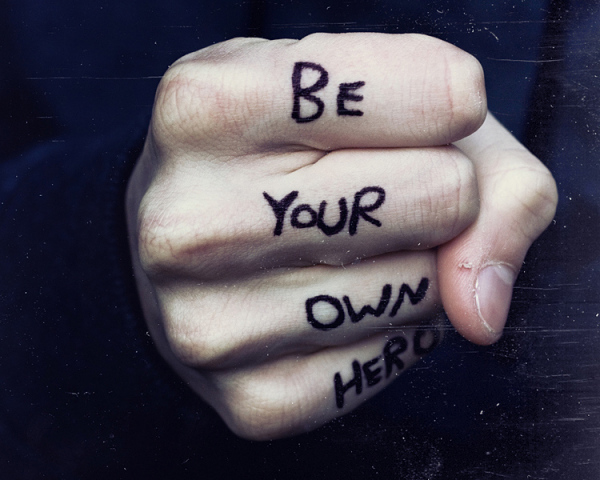
“I’m poor, black, I may even be ugly; but dear God, I’m Here! I’m Here!”
—Celie, The Color Purple
Film, literature and stories passed down via oral traditions are rife with examples of the reluctant hero. The fact that we love these tales about ordinary people called to do extraordinary things that they don’t feel they’re qualified to tackle highlights the appeal of this archetype. Perhaps it’s because we all hope there’s some unlikely hero hidden within us who will rise to the occasion as soon as we’re called upon to do so.
This trope often ensnares type Six characters like Lord of the Rings’ Frodo Baggins and Terminator’s Sarah Connor. Our hero(ine) is a dutiful every(wo)man, forced into unusually demanding circumstances, who fears letting everyone down whether (s)he takes the mission or not. It’s a lose-lose scenario bound to send any Six into a turbulence of anxiety and indecision. But the realization suddenly dawns that they are uniquely qualified for the mission precisely because of their ordinariness. Their sense of duty to others overrides any fear of sticking their neck out.
It also tends to land in the laps of Nines with a slightly different twist: the initial call in this case isn’t rejected because our hero feels particularly ordinary and unheroic, but rather because our hero is so unselfconscious that they don’t see themselves playing any role in the story, much less a heroic one.
I am watching this play out in real life with a friend of mine, and while I feel for my friend and the horrendously awkward position she’s in, I can’t help but feel lucky to be able to witness her stepping up to the plate and courageously acting for the good of so many people who don’t have the option of doing so for themselves.
Here’s the story. My friend—let’s call her Lisa—has been working for a man whose Level of Development has been declining for a few years, creating a toxic work environment. His behavior has been getting progressively more domineering and demeaning over time, and things finally reached a crescendo one day. Lisa, like many Nines in such circumstances, reached her limit of benevolent tolerance. She realized that she could no longer put up with such treatment and came to the decision that she wasn’t going to avoid or self-efface any longer. She was going to stand her ground in the mild-mannered, dignified and dispassionate way that only a Nine can. She told him how his behavior was affecting her and that she would no longer put up with it. She also told him that she could no longer trust him and that, between the two of them, they would need to come up with a solution wherein she could keep her job but no longer work for him.
If she had become emotionally reactive, accusatory, or even acquiescent as most people do in response to this guy, he would have had more fuel for whatever motives drive him. But because she was able to steadfastly hold her ground with honesty and humble dignity, the wind was taken out of his sails and his normal approach no longer served.
I wish I could say that circumstances have improved for Lisa, but thus far she’s simply in an awkward and untenable standoff with her boss. Of course, she is actively exploring other opportunities. But the aspect I really want to explore here is how this experience has transformed her.
When I met her, she was a pretty typical upbeat and sunny Nine for whom even the darkest cloud had a silver lining. Of course, there’s absolutely nothing wrong with having a positive attitude. But, as is the case with many Nines, her sunniness was often a way of keeping everything in soft-focus so that her inner peace would remain undisturbed.
The final confrontation with her boss, however, was a call to action that forced her to choose between continuing to go-along-to-get-along and a courageous act of speaking truth to power. In speaking her personal truth, she has not only become more engaged and more vibrant, but she’s also become a catalyst who may potentially effect positive change for everyone in her office.
I love the new Lisa who now lives and speaks from her Belly in a fabulously real, immediate and enlivening way. She is a living example of what happens when a Nine reconnects with their inner vitality and channels the anger they once dissociated from in meaningful and constructive ways. In other words, when Nines “show up.” When I told her this recently, she expressed regret and said she misses her sunny disposition. I see this as some of the natural anxiety that arises when Nines begin to “rock the boat” and then become anxious it will disturb their relationships and eventually cost them their inner peace.
But like Celie finally showing up after years of taking Mister’s abuse in The Color Purple, we love it when Nines show up because the world needs their talent for calm, appropriate, right action.
Photo credit atte tanner on DeviantArt.


Thank you Richelle for your beautiful post. I am a type 9 and your friend Lisa’s story was very endearing